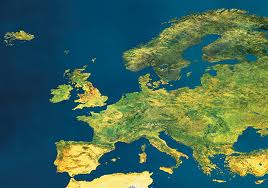Whenever someone has the resources and the determination to take new initiatives, it always tends to cause a stir, with both support and criticism. Jesper Nielsen, a wealthy Danish businessman has the financial capacity to go against prevailing trends of cut-backs and economic worries in European club handball. He is able, as an owner and sponsor, to keep two strong teams going, AG Kopenhamn and Rhein-Neckar-Lowen, but not without controversy.
OF course, it gives the European Handball Federation (EHF) some headaches, when the issue related to dual ownership comes up. In theory at least, there seems to be some scope for manipulation, if clubs that are participating in the same event, such as the Champions League, are under the same management. But there is also some agitation in Germany, where the R-N-L manager Thorsten Storm has criticized his boss for giving lower priority to the German club in favor of AGK. Storm has expressed concerns that R-N-L has not been getting the resources and the attention that the club needs and deserves. Instead, top players, such as Olafur Stefansson, are now moving from R-N-L to AGK.
And despite the excitement that the emergence of AGK has created in Denmark, there are very much mixed feelings about having the men’s league dominated too strongly by one team. The financial status and the competitiveness of the Danish league are seen as depending on the excitement generated by a tough and close competition for the title and the top positions among several more or less equal teams. And of course, a little bit of envy may also have something to do with negative reactions.
Moving on to Spain, perhaps a little bit of parity is on the horizon, after what has become known about the financial problems of the two totally dominating clubs in recent years, namely Ciudad Real and Barcelona. We are probably only days away from a decision regarding Ciudud Real and a seemingly unavoidable move to Madrid. But contrary to what I commented on in a recent article, it now seems that the best bet is a merger, not with Real Madrid but with football rival Atletico Madrid. This of course offers an interesting twist, as in fact Atletico Madrid was a handball team with great traditions as the dominating club in the 1960s and again in the 1980s. Famous coaches, such as the Domingo Barcenas and the current Federation president Juan de Dios Roman Seco combined with Spanish and international star players to gain numerous League championships and cup wins.
Barcelona’s triumph in the handball Champions League may have made it impossible for the football-focused club management to mistreat handball completely. But a major budget cut-back seems already decided. The expenses for the football team have sky-rocketed, due to both successful and disastrous player acquisitions. It was noted that the net loss after the initial purchase and subsequent bargain sale of Ibrahimovic was in the order of 40-50 million Euros, which is much more than the entire budget for handball. So now handball and basketball will be treated much less generously (and baseball is eliminated altogether), and what this might mean in terms of the ability to keep a generously staffed and paid handball team, with many international imports, is hard to predict.
The EHF has also had some concerns about developments in other ‘corners’ or Europe. In most parts of the former Yugoslavia, there has been a strong interest in cooperating around a regional league, which would provide some interesting competition not just for the top clubs but also for those who miss out on the top EHF events. Slovenian clubs seem to prefer to focus on their own league, and the top Hungarian clubs have also declined invitations. Instead, Tatran Presov from Slovakia (who would need to win a qualifying group in order to be in the EHF Champions League) would like to take part. Some interest also seems to exist in Poland, especially on the part of Kielce, who have a seemingly very strong team but stilled managed to miss the Polish title and the chance to participate again in Champions League.
However, it appears that the EHF has asserted its privileges regarding ‘cross-border’ competitions. It would not seem possible to deny neighboring countries the chance to organize an exchange on an ongoing basis, but the intended participation of precisely Tatran, a non-neighbor of the Balkan countries, seemed to give the EHF a basis for stepping in. Apart from this particular league, which had preferred to shed its ‘Balkan’ label, for the more flexible name ‘Southeastern Handball Association’, there are similar regional efforts among the Baltic countries and the BeNeLux, whose clubs rarely get very far in EHF competitions. Apart from the principles involved, and the obvious reluctance to encourage rivaling events, it seems that the EHF also might have some concerns about the image issues that could follow from a potential lack of discipline, poor crowd control and shaky refereeing in some region.

